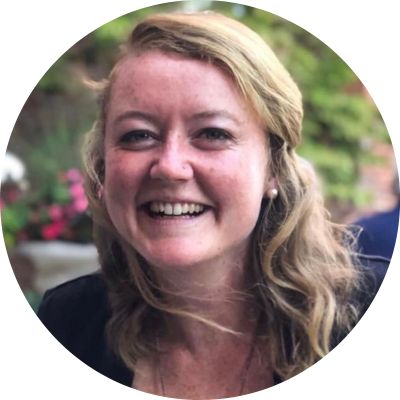Deacon Spotlight: Maura Connolly
Maura Connolly (2014, BA in Psychology with a minor in Journalism)
Project Manager at The Energy Coalition in Cambridge, MA
Tell us about your current job role and employer. What are you currently working on?

I am currently a Project Manager at The Energy Coalition, based out of Southern California where I used to live. I support the Incentives Program Team, managing a suite of programs that help to incentivize energy efficiency projects in the public sector through state funds, as well as the Project Team, which works with public agencies to identify opportunities for energy efficiency projects and help them apply for those incentives. Some of the projects I’m helping to coordinate include lighting upgrades at Los Angeles County airports and switching from gas water heaters to heat pump water heaters in CSU Long Beach dorms.
What key personal and/or career experiences led you to where you are today?
While I’ve always had a goal of ending up in a sustainability career, my path has been far from linear.
At Wake, I was a member of the community service fraternity Alpha Phi Omega (APO), which I LOVED. APO lead me to consider community service programs like AmeriCorps when I graduated without knowing what kind of job I wanted. AmeriCorps led me to California, where I always dreamed of living. The skills and CRM I used in my AmeriCorps position helped me get my first museum job at the Santa Cruz Museum of Natural History. At a museum conference, I networked with someone who worked at the Fleet Science Center in San Diego, which is where I ended up applying and accepting my next job.
While at the Fleet, I worked with dozens of organizations through the San Diego STEM Ecosystem. When I decided to leave the Fleet, I went to work at one of those partners: The Energy Coalition! It truly was one step, one job, one connection at a time.
What is the most challenging aspect of your job? How do you navigate that challenge?
One of the biggest benefits and challenges of my job is working fully remote. While I love the flexibility, I really miss having in person co-workers. I try to compensate by joining extracurricular work groups, like task forces and book clubs, and scheduling co-working blocks or informal catch-ups. I’m also always camera-on, to encourage others to show their faces and help me feel a little more connected.
What advice would you give to Wake Forest graduates about developing their personal life habits after college (finances, health, values, work/life balance)?
My first job after college was through an AmeriCorps program and I’m so grateful for the personal life habits it helped me develop. First of all, we were paid through a stipend that calculated out to be less than minimum wage. So straight off the bat, I had to learn how to be cheap and thrifty. Secondly, all of the people I hung out with socially were also in AmeriCorps, and were also trying to be cheap and thrifty. This meant we were all on the same page about finding fun, free, often outdoor activities to do together, instead of defaulting to going out to eat and drink.
Even as my paycheck increased later in life, I continued to live by those values: don’t spend in excess, sustainable is cool, social activities don’t have to involve money, and the outdoors is always free! Find friends who share these values so you’re not pressured to break your budget.
We know that relationships are important for any kind of development. How do you build and maintain your network?
Professional networking intimidates me, but building friendships is easy. I am not great at staying in contact with professional acquaintances I’ve met here and there, but I do have relationships with former colleagues who I know I can reach out to at any time. Most of my lasting relationships are built on knowing that person beyond who they are in the office. Having conversations about family, weekend plans, and mental health builds relationships stronger than a business card swap.
Similarly, following someone on social media is more personal than LinkedIn and provides more opportunities to comment and connect!
Tell us about your mentoring relationships. What impact have these relationships had on your career and life?
My mentors have sometimes been supervisors and sometimes co-workers. Nearly all of them have been women. They have helped me to navigate the transition from student to professional, and to grow confidence in myself and my abilities. Most importantly, they taught me how to advocate for myself, whether for a healthier work environment, appropriate recognition, or increased compensation.
Because of the impact my mentors have had on me, I’ve been eagerly pursuing supervising opportunities at each job so I can be that person for someone else.
What advice would you give to current Wake Forest students and/or young alumni who are interested in working in your industry?
Work on your transferable skills! Think about what kinds of tasks you would want to do on a day-to-day basis, and apply for any jobs, internships and/or volunteer opportunities that involve those skills. Every organization expects to train new hires in the specifics of their sector/organization; being good at the basics will help get your foot in the door, regardless of your education or professional background.
What’s next for your career? What future goals or plans are you pursuing?
I’m continuing to take it one job at a time! As long as I’m happy, I consider myself successful. One career goal I am working towards though, is to manage a team.
Story published in May 2025. For current updates about Maura, visit her LinkedIn profile.
